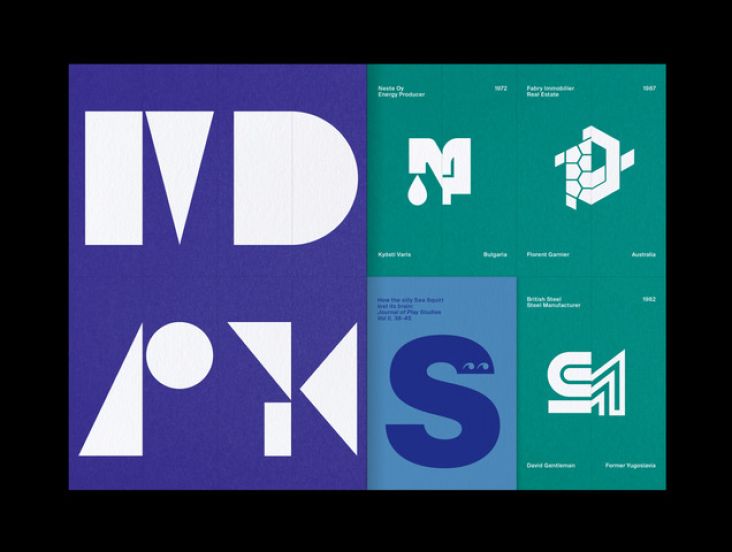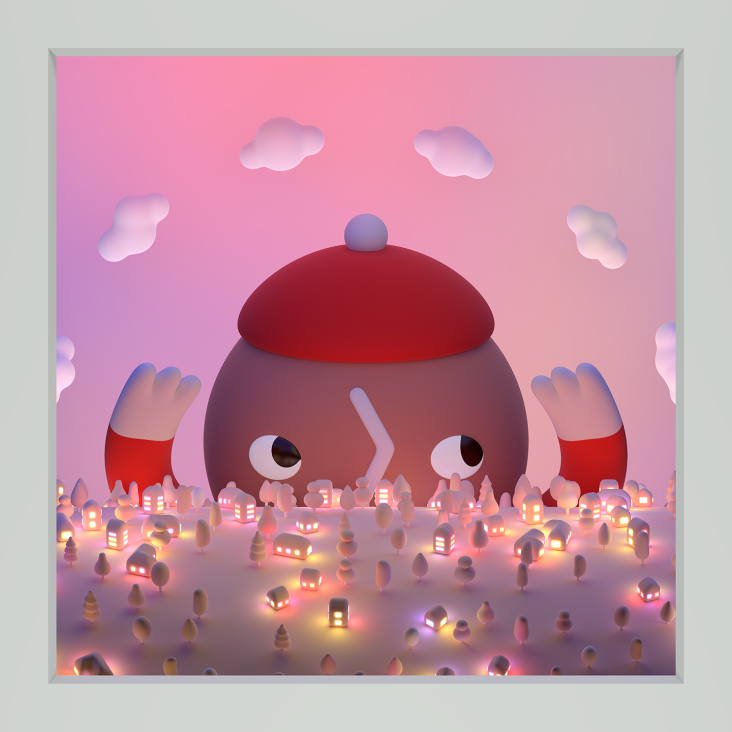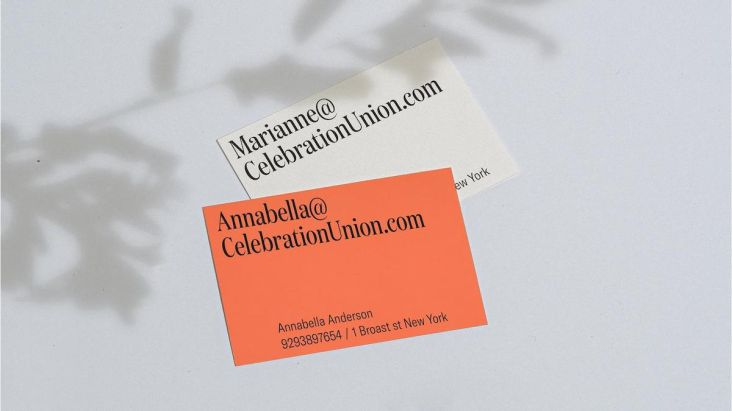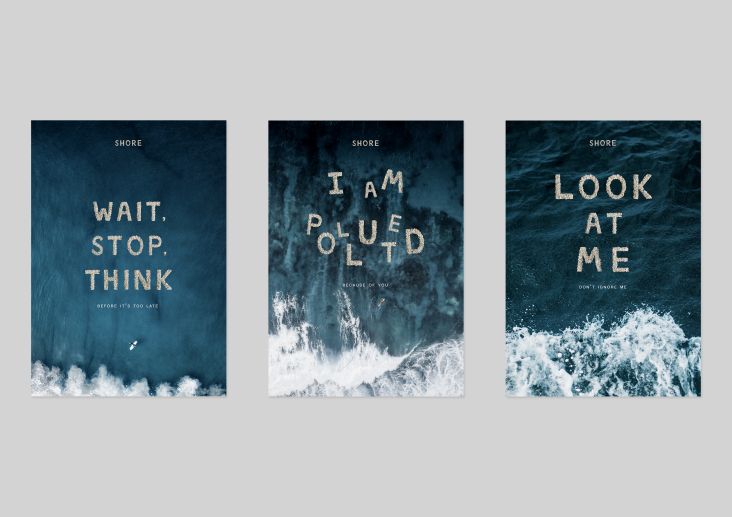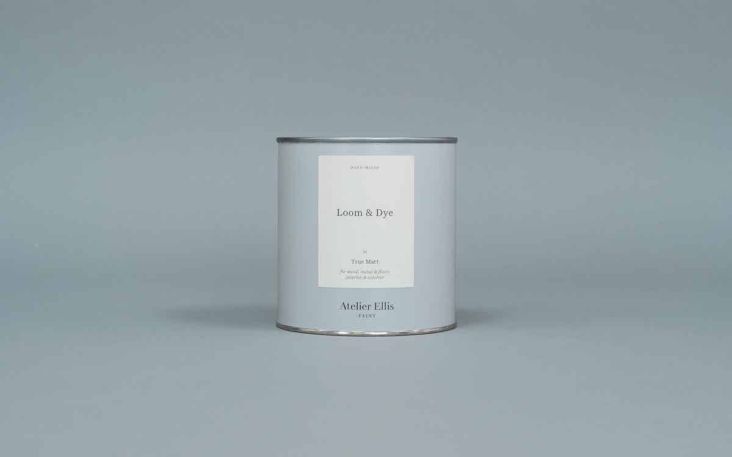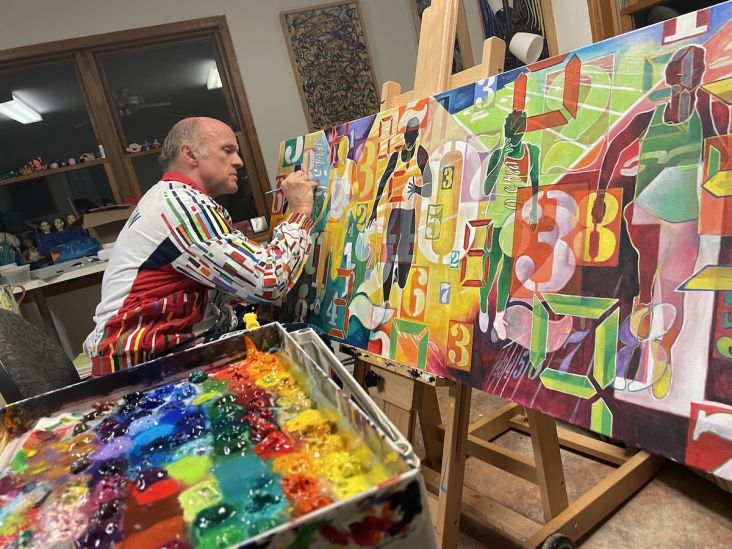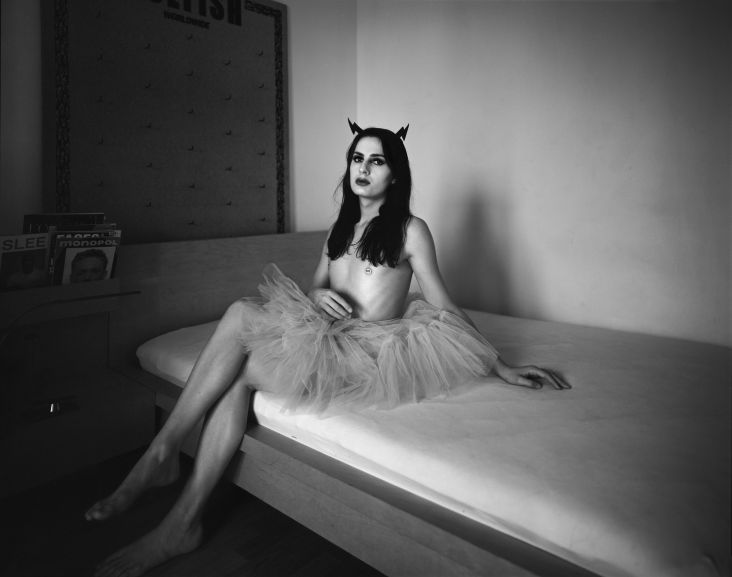Artist Masako Miki draws on ancient Japanese mythology to explore non-binary identities
Interdisciplinary artist Masako Miki refers back to the Shinto concept of shapeshifters that take the form of everyday objects and unidentifiable forms to provide resolutions to our modern-day conflicts.
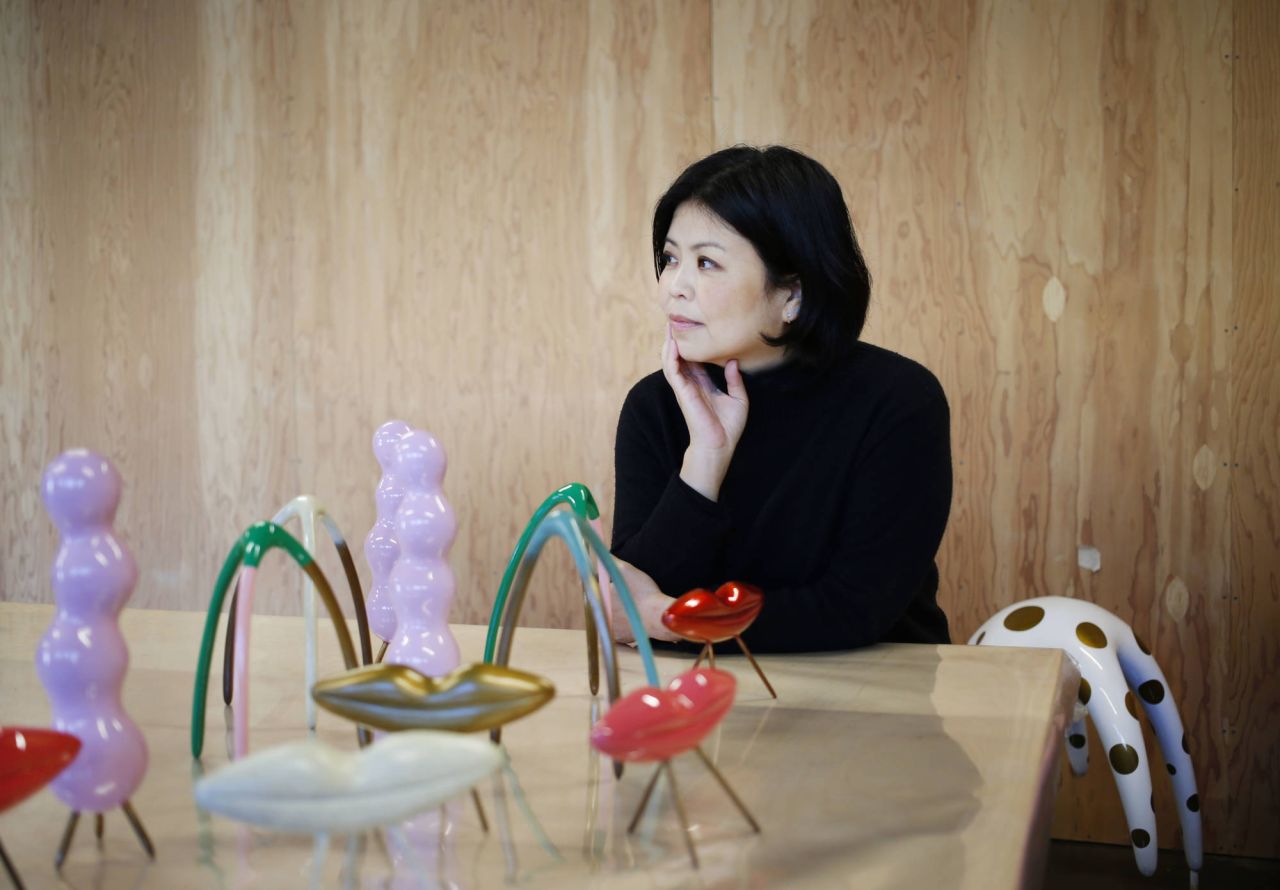
Photo by Andrew Payter. Courtesy of the artist and CULT Aimee Friberg Exhibitions.
As an inter-disciplinary artist, Masako's creations include large felt and wool installations that tackle themes such as cultural identity and pluralism. By taking inspiration from Tsukumogami yōkai - the Shinto belief that objects become occupied by spirits after one hundred years - she hopes to tell new stories that explore transformation and the dichotomies of human identities.
Her latest installation, Radical Hope, has recently debuted at Ryan Lee Gallery on New York's High Line and is an extension of her 2019 Shapeshifter series. Featuring new shapeshifters inspired by Tsukumogami, the exhibition includes an animated roll of cotton, a faceless ghost and an animated pine tree, amongst other strange creations.
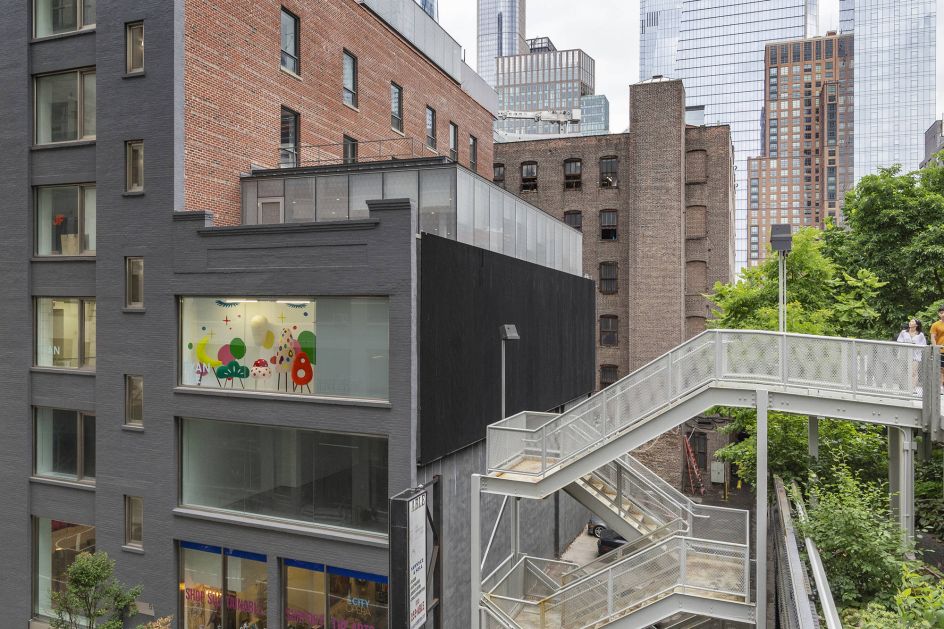
Radical Hope installed at RYAN LEE Gallery, 2021. Courtesy of the artist, RYAN LEE Gallery, New York, and CULT Aimee Friberg Exhibitions, San Francisco.
![Matsuno-ki Yokai (animated pine tree), 2021 [left] Wool on EPS form, walnut wood (H) 33.5 inches x (W) 37.5 inches x (D) 18 inches Kagami-mochi yokai (animated mirror sticky rice cakes), 2021 [right] Wool on EPS form, maple wood (H) 37 inches x (D) 25 inches Courtesy of Artist](https://www.creativeboom.com/upload/articles/0f/0fe2dc6595723c263548251e88cd311a31ecfec3_944.jpeg)
Matsuno-ki Yokai (animated pine tree), 2021 [left] Wool on EPS form, walnut wood (H) 33.5 inches x (W) 37.5 inches x (D) 18 inches Kagami-mochi yokai (animated mirror sticky rice cakes), 2021 [right] Wool on EPS form, maple wood (H) 37 inches x (D) 25 inches Courtesy of Artist
"Shapeshifters are interpreted in unique ways when they are created," says Masako. "Every mythology reflects the time when it was created. I am interested in re-contextualizing these mythologies for our generation."
She adds: "While referencing these ancient mythologies, my intent is to craft new mythologies. As an artist, I wonder what kind of mythologies need to be crafted now. We see an increasing number of non-binary spaces unique to the current situations including gender fluidity, biracial identity, and multiculturalism."
The question of cultural identity is one that's close to Masako's heart. As a Japanese immigrant who now resides in San Francisco, she finds that she could explore the topic best by referencing Japanese traditions.
![Mikazuki Yokai (animated crescent moon), 2021 [left] Wool on EPS form, walnut wood (H) 59 inches x (W) 31 inches x (D) 26 inches Ittan momen (animated roll of cotton), 2021 [middle] Wool on EPS form, wenge wood (H) 72 inches x (D) 24 inches Gobo Obake (possessed burdock roots ghost), 2021 [right] Wool on EPS form, walnut wood (H) 47 inches x (W) 23 inches x (D)17 inches Courtesy of Artist](https://www.creativeboom.com/upload/articles/29/2913e4f135f72cdd749e26beaa862f9ff7725e1d_944.jpeg)
Mikazuki Yokai (animated crescent moon), 2021 [left] Wool on EPS form, walnut wood (H) 59 inches x (W) 31 inches x (D) 26 inches Ittan momen (animated roll of cotton), 2021 [middle] Wool on EPS form, wenge wood (H) 72 inches x (D) 24 inches Gobo Obake (possessed burdock roots ghost), 2021 [right] Wool on EPS form, walnut wood (H) 47 inches x (W) 23 inches x (D)17 inches Courtesy of Artist
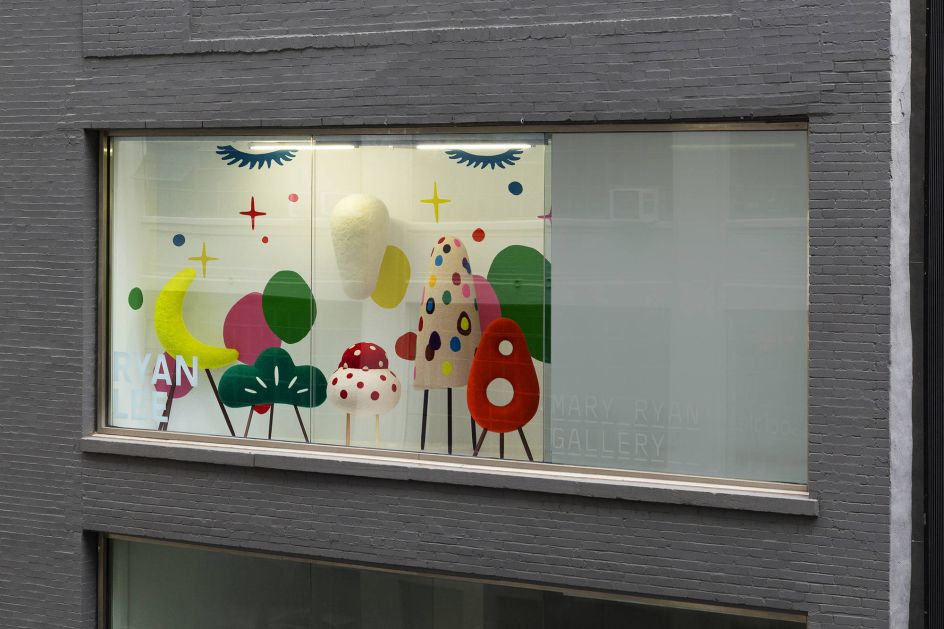
Radical Hope installed at RYAN LEE Gallery, 2021. Courtesy of the artist, RYAN LEE Gallery, New York, and CULT Aimee Friberg Exhibitions, San Francisco.
"Shapeshifters are inherently boundless in their nature, as they continue shape-shifting throughout their existence," Masako explains. "Because of their unique characteristics, they do not conform to accepted identities; instead, they generate new identities."
At a time when the world seems so polarised, perhaps shapeshifters with a fluid sense of identity are the best way to generate empathy. By embodying contrary characteristics, Mosako's creations reflect the nature of nonbinary spaces and encourage viewers to stay open-minded.
"As our social values need to be seriously reexamined now, it is my radical hope that we ask the right questions to redefine our collective identities," says Masako.
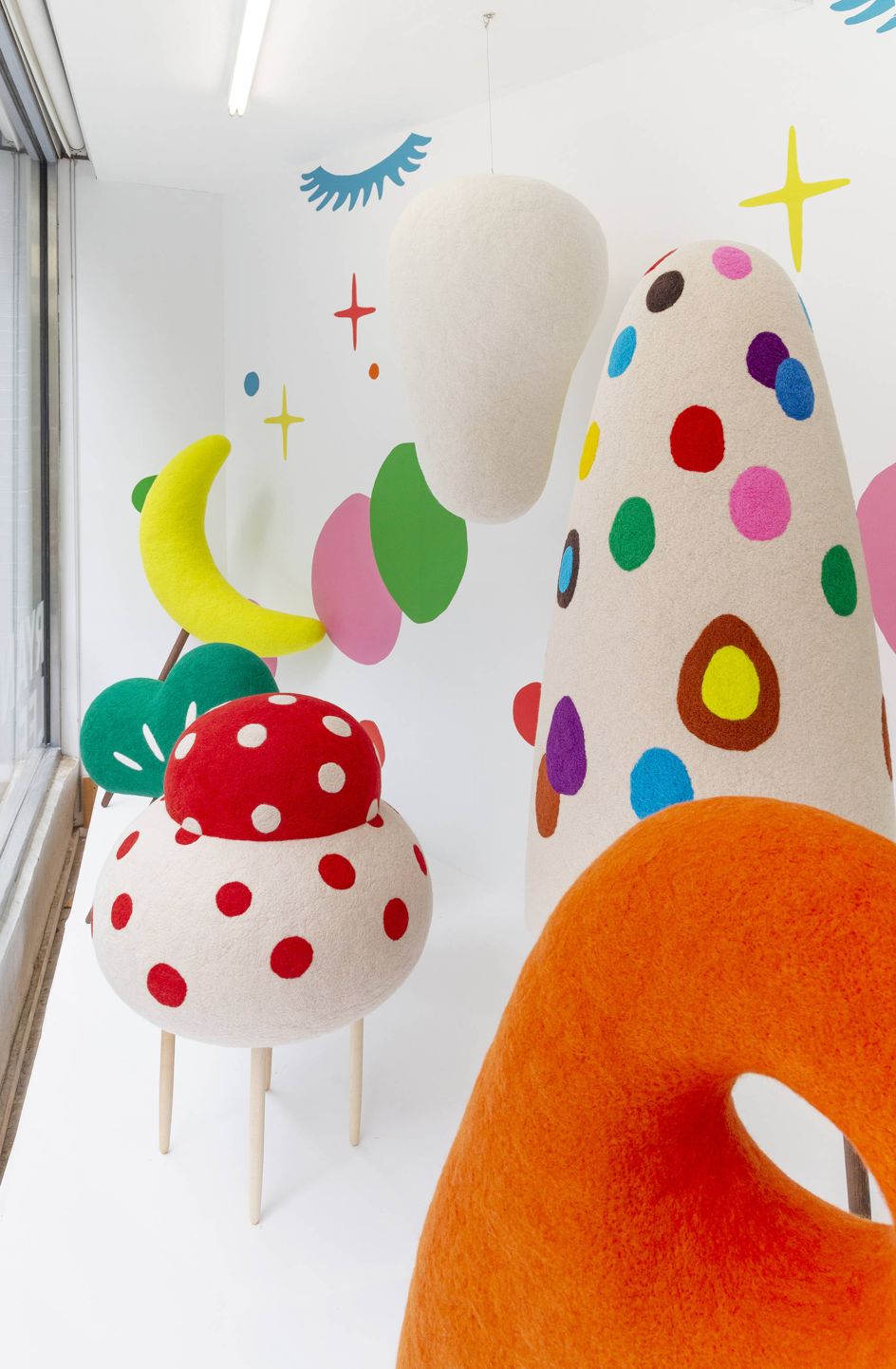
Radical Hope installed at RYAN LEE Gallery, 2021. Courtesy of the artist, RYAN LEE Gallery, New York, and CULT Aimee Friberg Exhibitions, San Francisco.
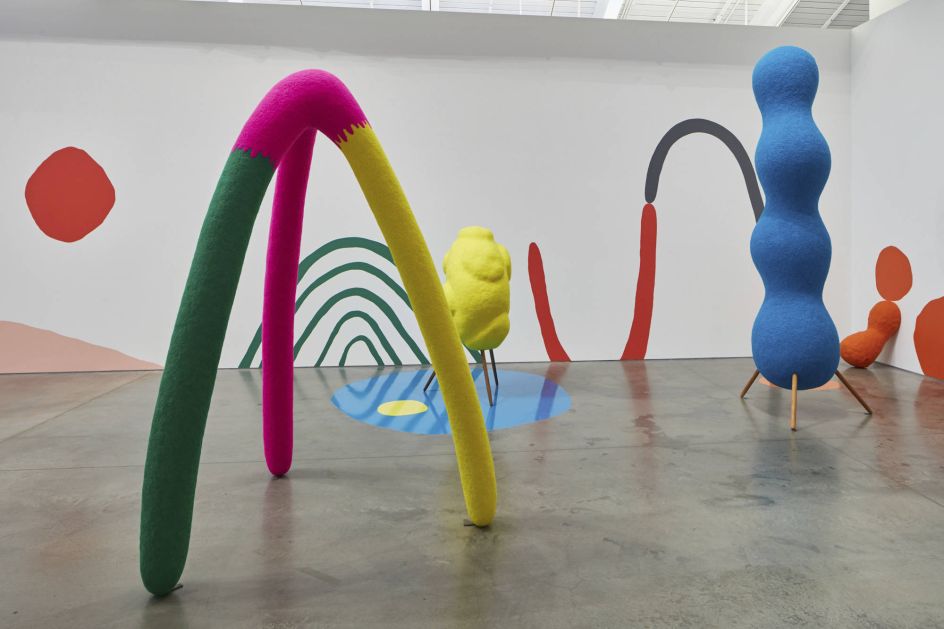
Installation view of Matrix exhibition 273 Shapeshifters in a Park at Berkeley Art Museum and Pacific Film Archive in Berkeley, 2019 Courtesy of the artist
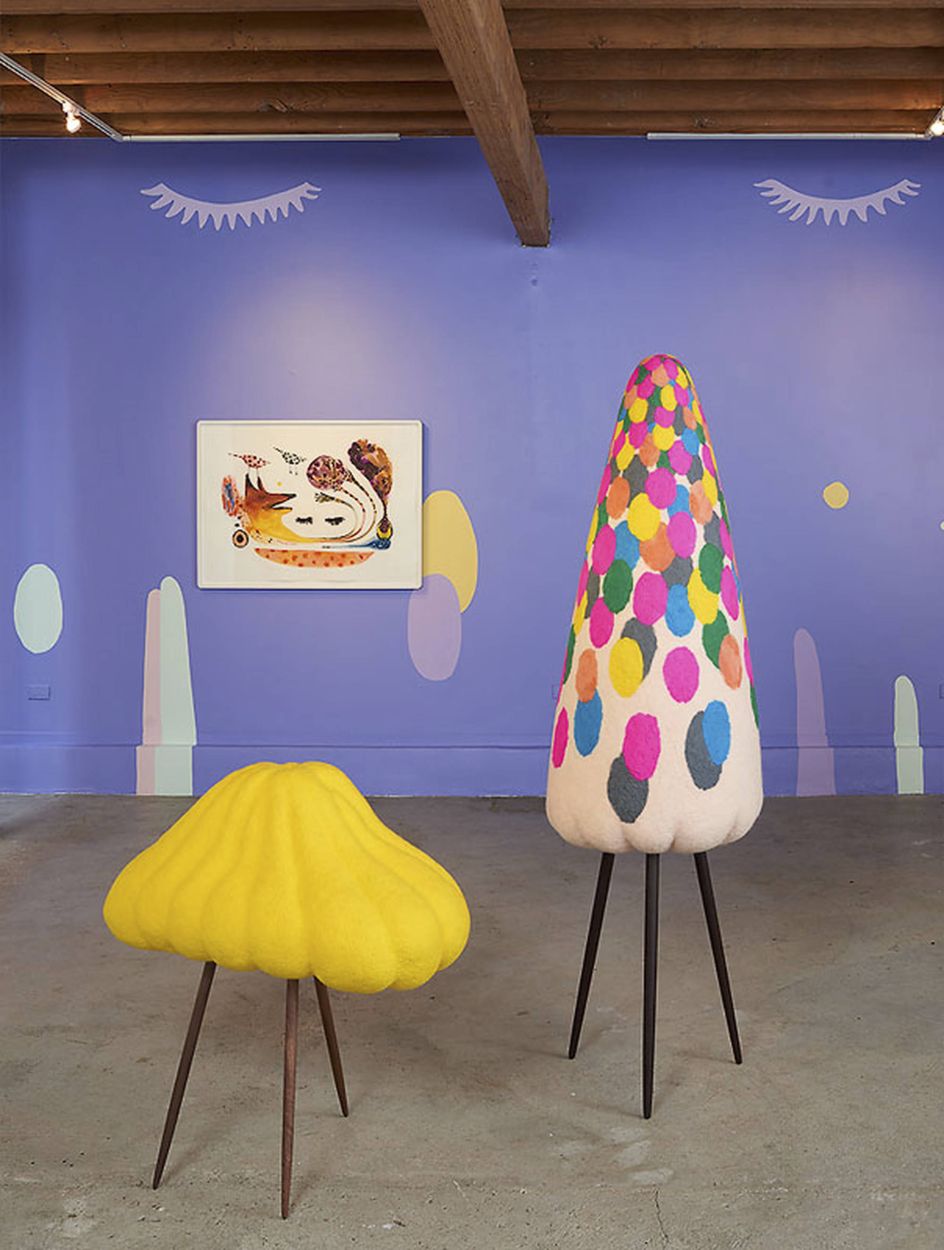
Shapeshifters at CULT Aimee Friberg Exhibitions Courtesy of the artist and CULT Aimee Friberg Exhibitions




 by Tüpokompanii](https://www.creativeboom.com/upload/articles/58/58684538770fb5b428dc1882f7a732f153500153_732.jpg)


 using <a href="https://www.ohnotype.co/fonts/obviously" target="_blank">Obviously</a> by Oh No Type Co., Art Director, Brand & Creative—Spotify](https://www.creativeboom.com/upload/articles/6e/6ed31eddc26fa563f213fc76d6993dab9231ffe4_732.jpg)








